Is Oat Flour Gluten Free? Tips & How To Substitute
So you find yourself craving some granola bars or oat muffins, only to think twice because celiac disease means oats are off limits, right? Or are they? Let's dive in and find out for sure... is oat flour gluten free?
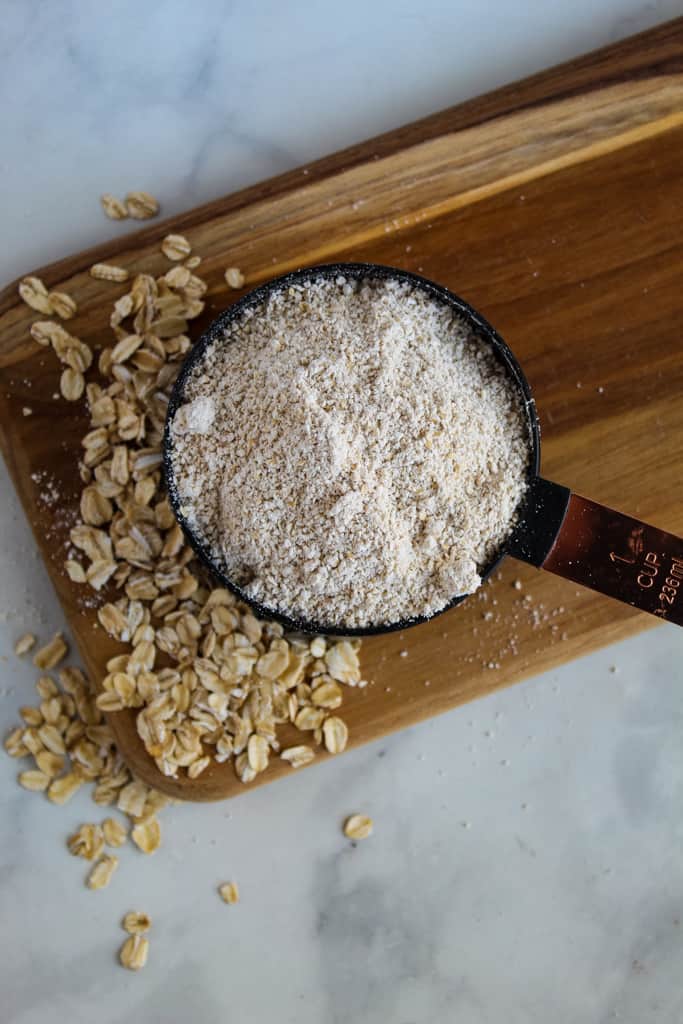
In general, gluten free baking presents it's own challenges with everything from how you're measuring ingredients (always use a digital scale) to the batter rest time to starch content, even altitude, but throw in the possibility of gluten-containing grains like in oat products and oat flour and it gets even more complicated.
Even the most seasoned gluten-free label watcher may wonder if oat flour recipes are safe for those with gluten intolerance.
As an affiliate partner of various brands and sponsored content, Zest for Baking may earn commission on qualifying purchases. Disclaimer
Let’s take a closer look at oat flour and if it's safe to consume on a gluten-free diet.
Looking for more support with gluten free baking? Check out this post on xanthan gum substitutions, this one on gluten free thickeners, and this one on psyllium husk powder substitutes.
Jump to:
Is Oat Flour Gluten Free? Key Take-Aways
Oats grow in northwest Europe, North America, and the Himalayas-all foothills, temperate regions. Unlike other gluten-free and gluten grains, oats require more rain and less heat.
Oat flour is a whole grain flour made from oats that have been processed to a fine flour. Oat flour is gluten free because pure oats are gluten free.
But oats are also frequently subject to cross contamination as not all oats are processed in a dedicated gluten free facility.
So if you are gluten-free - whether celiac or non-celiac gluten sensitivity, make sure your gluten free oat flour comes from certified gluten-free oats.
All About Steel-Cut Oats, Rolled Oats, Whole Oats & Quick-Cooking Oats
Along with other gluten-free grains, oats are often seen as a side dish, porridge, or cooked along with other foods. But oats are also a great addition for a number of other reasons:
- Oats contain more fat and protein but less carbs and sugar than whole wheat.
- They contain a significant amount of calcium.
- Oats have antioxidant properties.
- Oats also help people stabilize their blood sugar.
- Due to its high water and soluble fiber content, it’s good for people who are trying to lose weight.
And the good news is that oats, in all forms, can also be made into oat flour. Below are the different types of oats available in most grocery stores, health food stores and online:
Steel-Cut Oats: Steel cut oats are most closely related to the original, unprocessed oat groat. Steel-cut oats have a coarse, chewy texture and nutty flavor.
Quick-Cooking Oats: Also called quick oats, this type of oat is not as full of flavor as the steel cut because of how it's processed. These oats are commonly used in gluten free oatmeal.
Rolled Oats: Rolled oats have also been processed, though not as much so as quick oats.
Whole Oats: Also called whole groat oats, this is what oat flour in a grocery store is typically made with.
Pure Oats: Pure oats is a term used to describe a purity protocol that these oats have gone though so that the majority of people with celiac will not experience any negative effects from consuming them.
Old-Fashioned Oats: Also called rolled oats, the Bob's Red Mill brand of old fashioned oats (used in these granola bars) are certified gluten free.
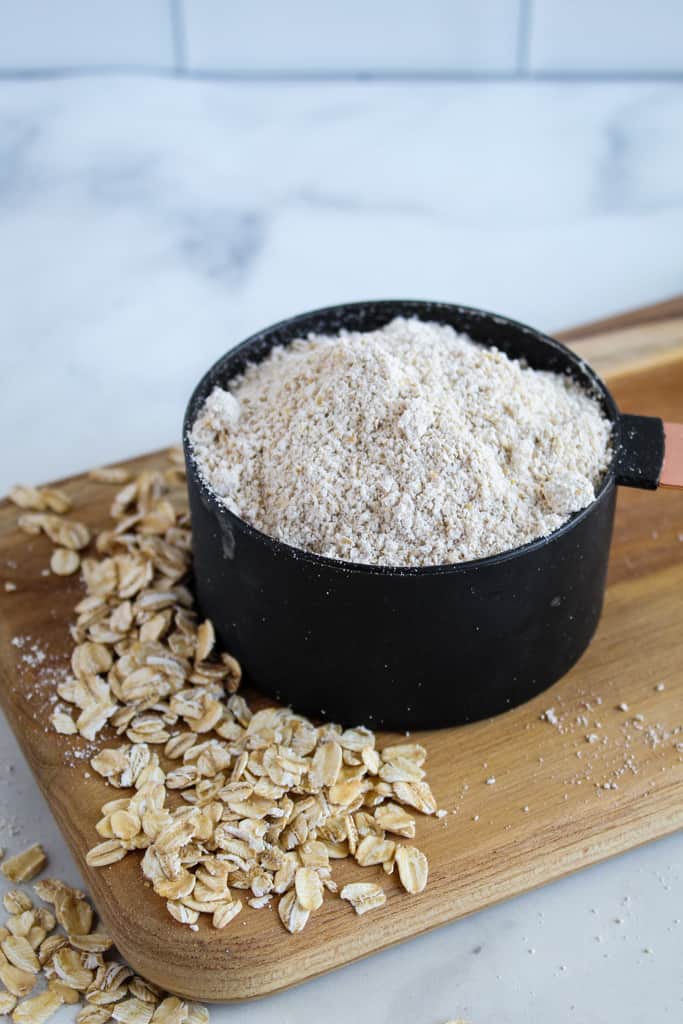
Making Homemade Oat Flour
Making your own oat flour just requires a food processor or high-speed blender and patience. In the end, you’ll get a pure form of oatmeal flour, a fine powder with a nutty and toasty aroma.
Having made oat flour several times, you can technically use any type of oats, but for best results, I recommend using whole or old fashioned oats.
Baked treats made from oat flour have a soft, fluffy texture, which is especially important in something like this oat flour banana bread or this oat flour cake. Plus an irresistibly chewy texture to oatmeal raisin cookies and gluten free blueberry oatmeal muffins!
When incorporated, oat flour also lightens baked goods with a usually heavy texture, such as gluten free oat bread, oat flour pancakes, and even the biscuit topping for this peach cobbler.
Pro Tips for Making Your Own Oat Flour
- When making oat flour, it is essential to process the oats well. A 5-minute process time is not unusual.
- If you want completely powdery flour, with no pieces of oats left, run the processed flour though a fine mesh strainer.
- Store oat flour in a cool, dry place in an airtight container. Reference this article for storage and shelf life.
Buying Gluten Free Oats & Flour
Whether making homemade oat flour or buying it from a store, here are some tried and true brands:
- Certified gluten free oats - check out Bob's Red Mill and Nuts.com
- Certified gluten-free oat flour - also Nuts.com or Anthony's
Oat Flour Substitutes
Whether you’re just experimenting or just out of oats and oat flour, here are some substitutes to turn to for oat flour:
1. Almond Flour
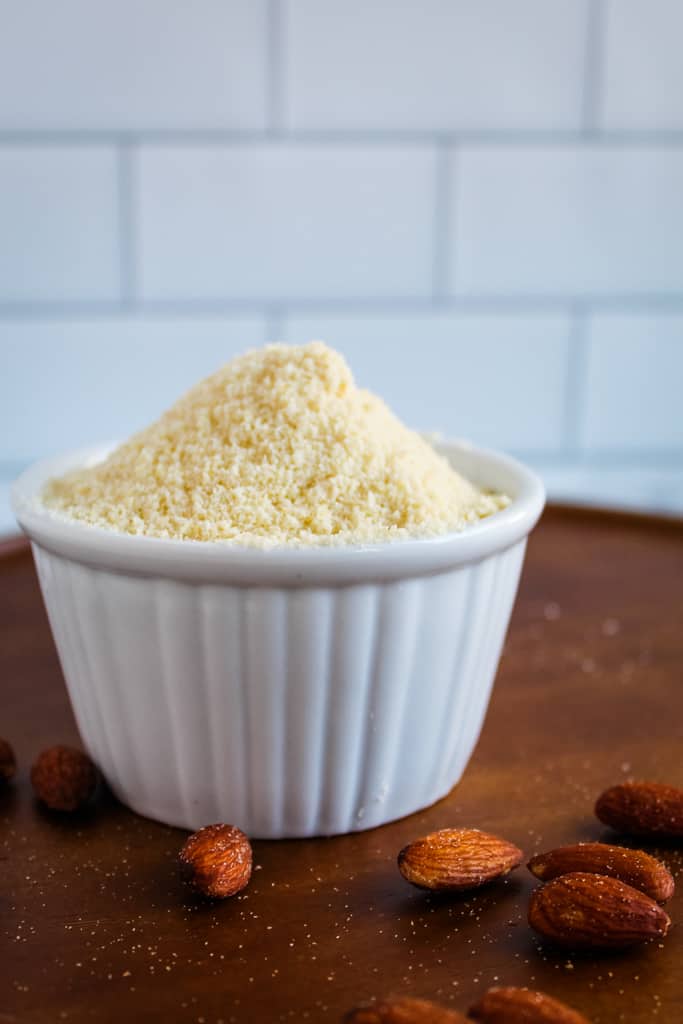
Texture and make-up wise, almond flour is very close to oat flour. Almond flour is 21% protein and about 10% fiber. Whereas oat flour is 17% protein and 10% fiber, so they're a very close comparison.
Similar to oat flour, golden pale almond flour is also packed with proteins and has a soft, light, cakey, rich, and chewy texture. Plus, it has a neutral flavor, perfect for when you’re in the mood for experimenting with flavors.
2. Buckwheat Flour
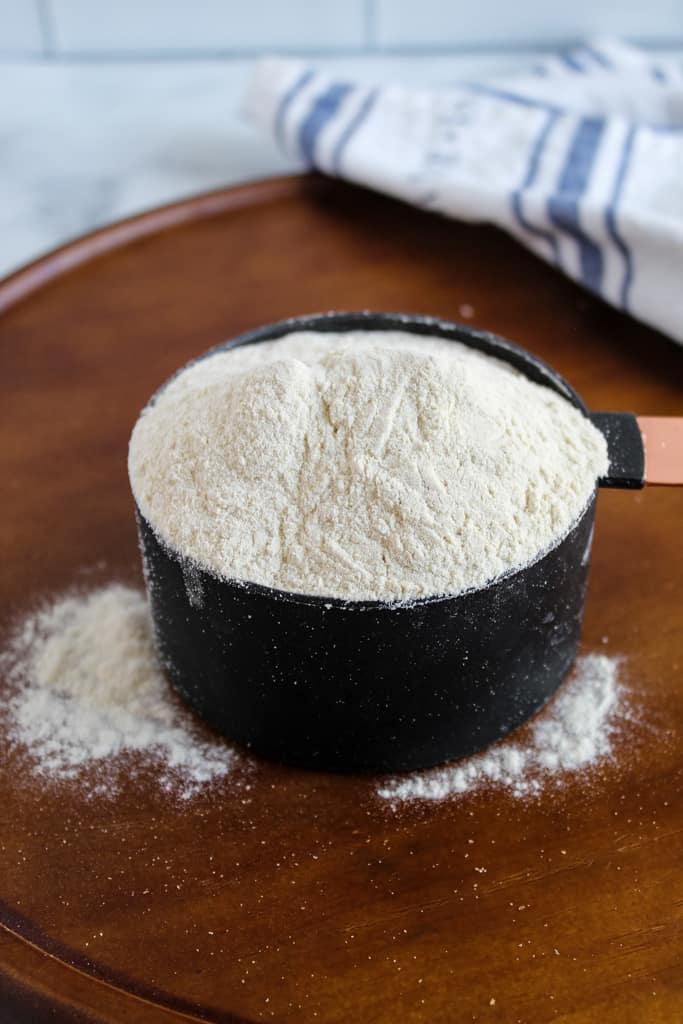
Buckwheat flour is also an excellent option for oat flour - it produces delicious, earthy, and sophisticated cakes and cookies.
Buckwheat can be an intense flavor in lighter backed goods however, as it can lend a bold and hearty flavor.
Is Oat Flour Gluten-Free - More FAQs
Buckwheat flour is a substitute for oat flour, especially if you’re after a nutty and earthy flavor.
In theory, any type of oats will work. The best options are oat groats, rolled oats (or old fashioned oats), and steel-cut oats.
As for the storage and shelf-life, store oat flour in a dry place in an airtight container. Find out more about how to store flour here.
Like oatmeal, oat flour has a mild, sometimes nutty flavor that tastes very light on it's own. It's one of those flours that enhances the flavors of anything paired with it.



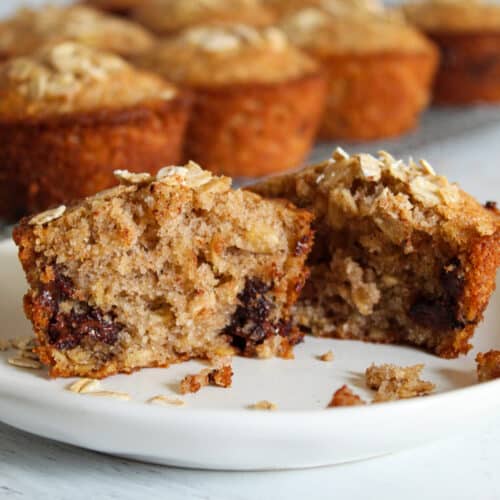
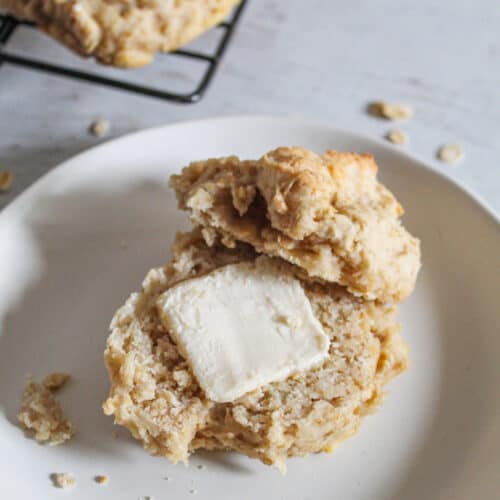
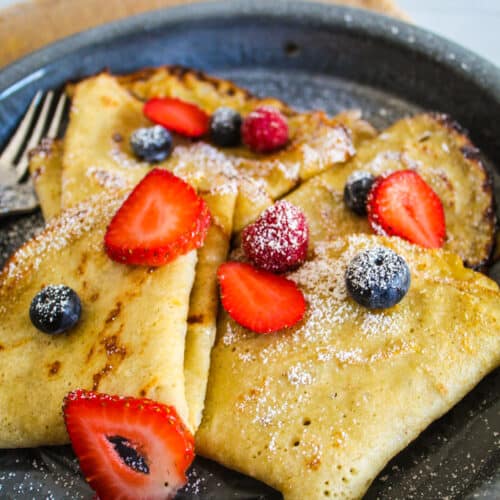

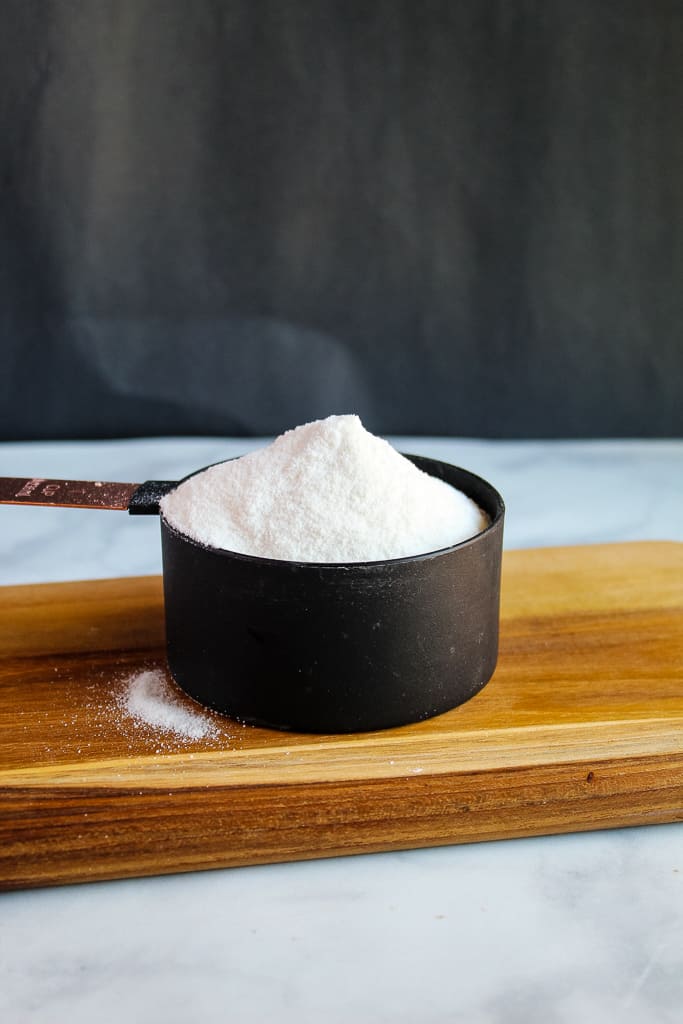
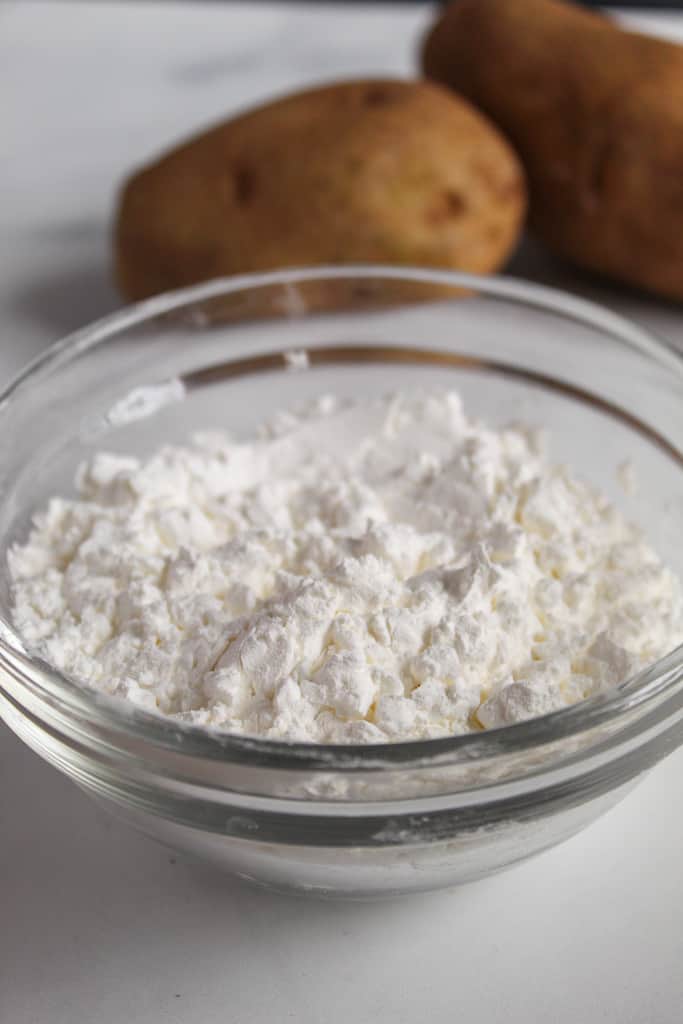
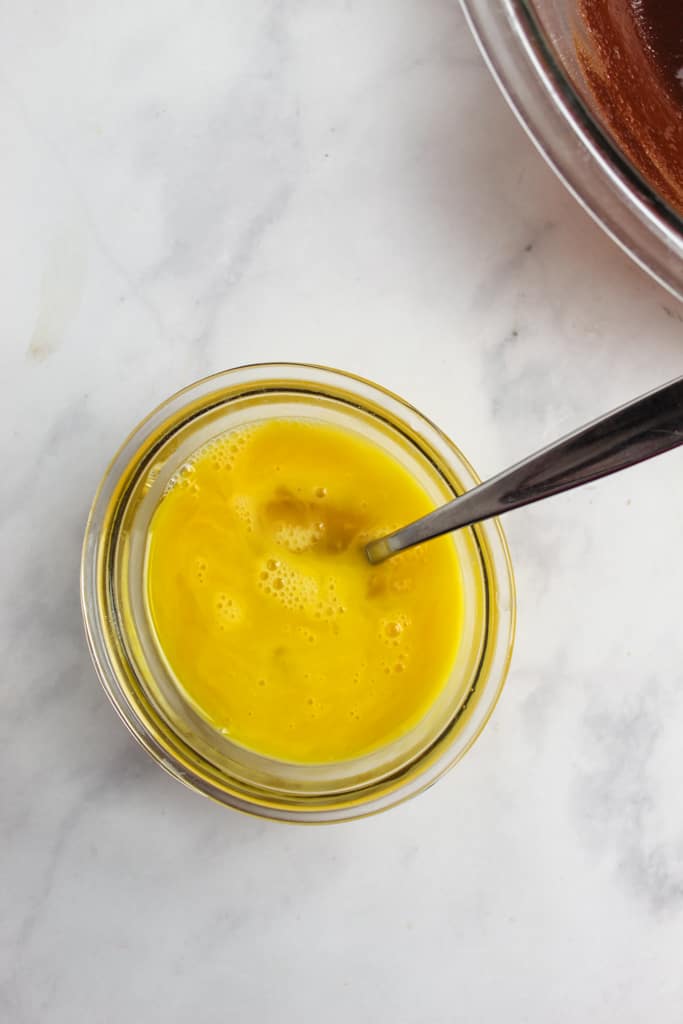
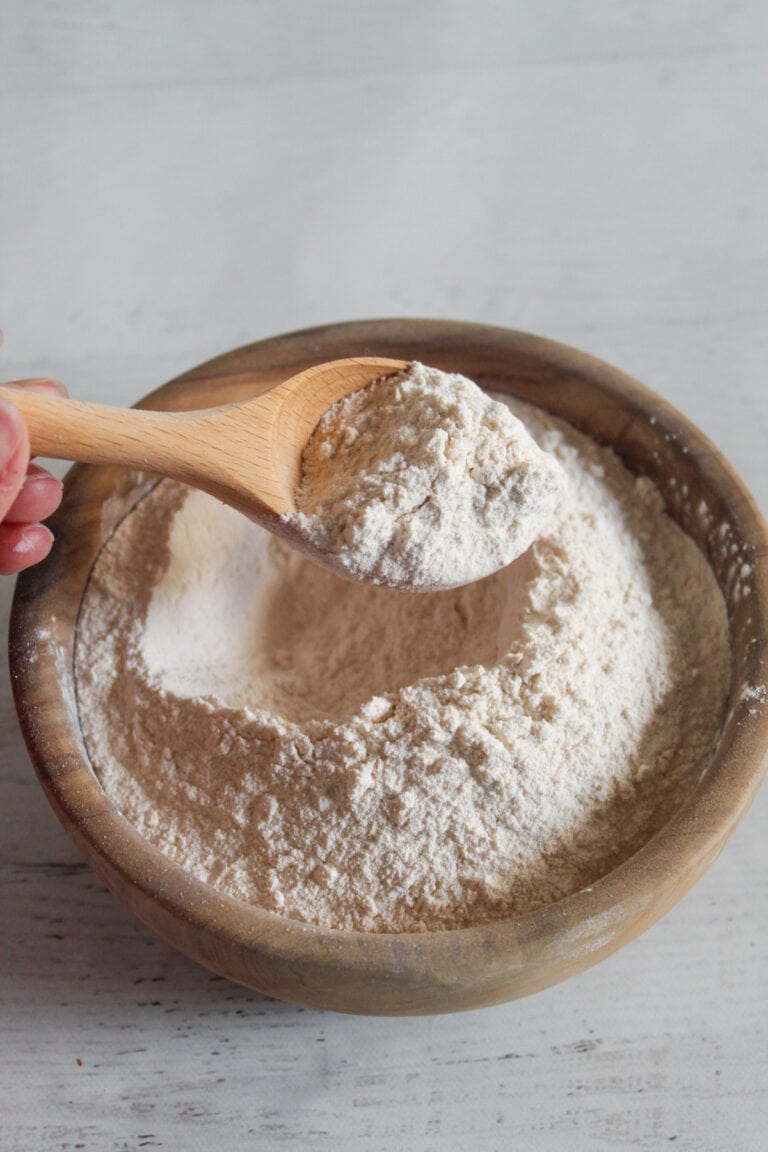
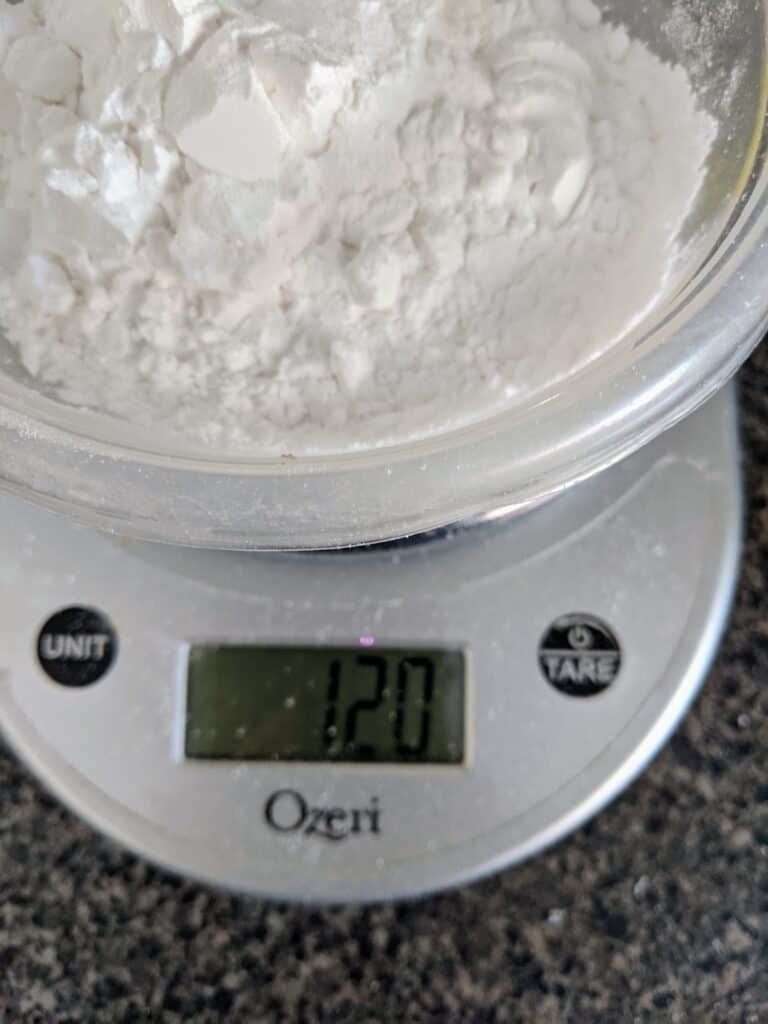
Great info! I made some zucchini muffins using only oat flour and oatmeal. There was eggs, milk and oil in the recipe but no gums/thickeners. They look and taste really good, are decently moist but very crumbly. Any thoughts how I can improve this?
Hi Sheryl,
Thanks for asking - glad they turned out tasty despite being crumbly - it really could be a number of things, but most likely they needed some starch in the recipe too. Or add some xanthan gum or something to act as a binder. For example in this recipe https://zestforbaking.com/gluten-free-zucchini-muffins I use both a gum and the flour mix has starch in it.
Try adding those and see if that helps.
Christine
Found your site as I googled "gluten free substitutions for oat flour." Thank you so much for your comprehensive posting of information.
Prior to having to adopt gluten free living, I absolutely loved a hot bowl of oats with nuts, etc., sweetened with a bit of homemade brown sugar or maple syrup. Little did I know back then that the serious digestive and other issues were caused by being highly sensitive to gluten, and that oats (even GF!) could be so horrific to my system. Fast forward to the day our adult daughter was diagnosed with Celiac disease, and I had to evaluate my otherwise healthy diet. Gluten-free now for 6 yrs, I cannot incorporate not even certified GF oats....I've become very skillful at baking GF, so I appreciate the well displayed list of oat substitutes that you've provided. My favorite choice is almond flour and almond meal for majority of recipes. I'll be making your applesauce cake for the first time this afternoon, and I'm looking forward to having some with café con leche for breakfast tomorrow! ¡Mil gracias!
Hi Iris,
Thank you for sharing! Even I sometimes have trouble with different brands of 'GF oats', thankfully it's an easy thing to substitute!
Happy baking!
~Christine
Thank you for sharing this!
If I wanted to substitute buckwheat flour for oat flour, is it a 1:1 ratio?
Hi Ash,
So it is yes. Buckwheat is more of an earthy flavor, so that would be the only thing to kinda keep in mind, but strictly speaking, yep.
Hope that helps!
Christine
Thank you for all your great information. You always have helpful hints.
Thank you Judy, so glad to hear it helps 🙂
~Christine
I was believe that oats has gluten or at least some gluten, so how will it go if you are unable to have gluten products? i saw nothing in your information stating this.
Hi Vee,
So thanks for asking - there are actually many varieties of gluten free oats - I use them often without a problem. However, oats also have the pesky problem of cross contamination. So many people cannot tolerate them. So I hope this article helps if you avoid oats too!
~Christine
Thank you so much for this substitution list for oats. I’ve known about my Celiac for over 30 years and tried gluten free oats when they came out. I don’t tolerate oats or oat flour at all. Will give buckwheat and almond flour a try.
Hi Laura,
You are very welcome. Glad it's helpful!
~Christine
I would love to be able to use almond flour instead of Oat flour in recipes due to the grains. I do much better not using grains in my diet, Do I just substitute cup for cup or weight for weight?
Hi Patricia,
Yep, just weight for weight.
Thanks for asking.
~Christine